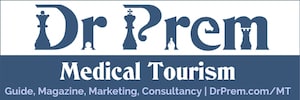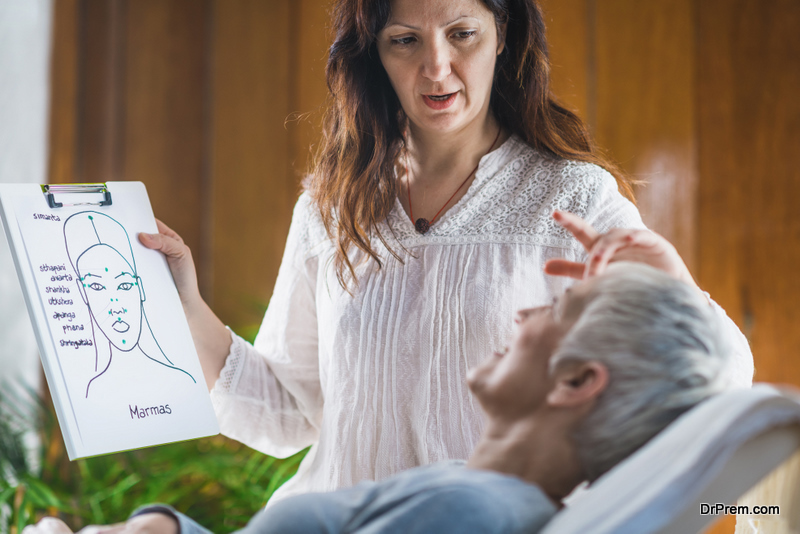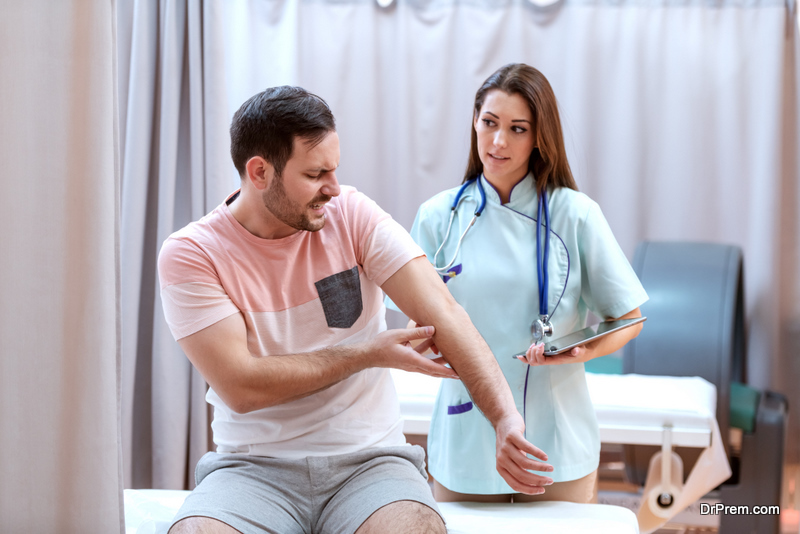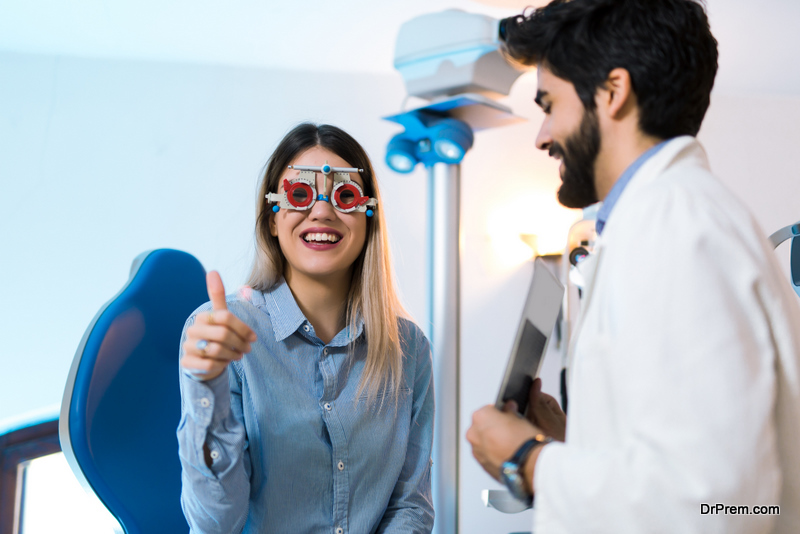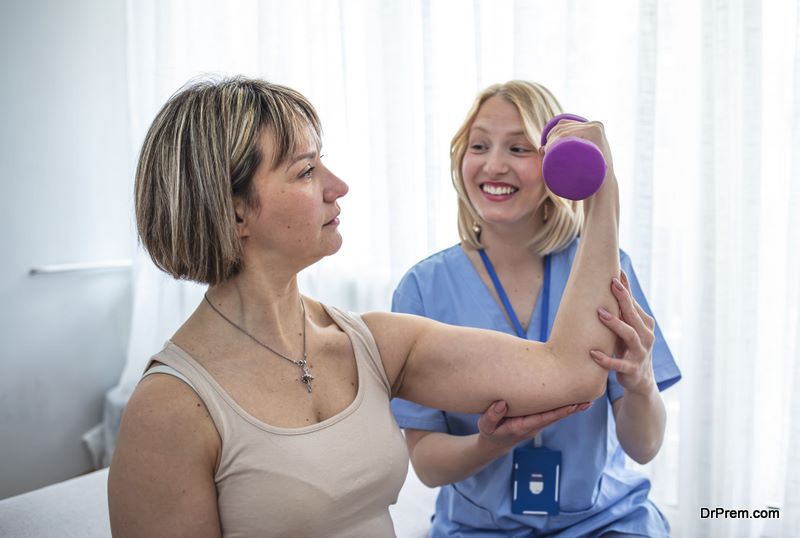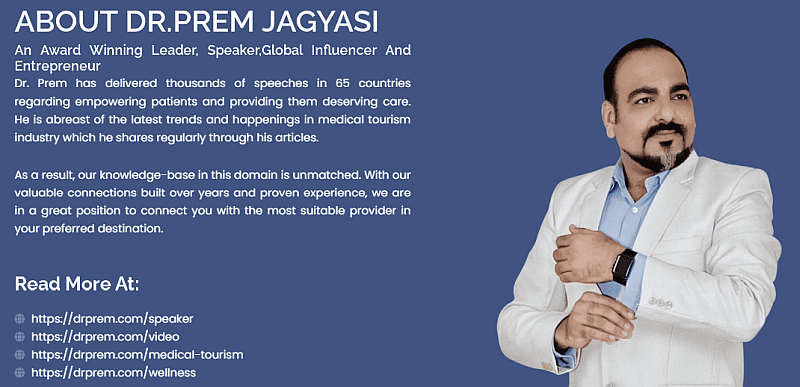Building effective communication is the cornerstone of the medical tourism and wellness tourism business. Much is being talked about the patient experience but it all starts with good and effective communication. It fosters great relationships, builds loyalty, and sets the foundation for sustainability.
How good are you at initiating and maintaining effective communication? Do you always take the right approach to communicating with patients and wellness tourists? It is so important to strike the right chord with patients. Every patient or consumer should get due attention when they reach out to you.
Whether you are a medical tourism coach, facilitator, or provider dealing with international patients,without effective communication, you cannot build relationships and grow. In any medical tourism training program, this should be an integral feature.
So how do you work for effective communication in medical tourism and wellness tourism? In this medical tourism guide, you will read about the following:
Guide To Create Effective Communication In Medical Tourism And Wellness Tourism Business – Insights From Dr Prem Jagyasi
-
What do you mean by effective communication in medical tourism and wellness tourism business?
-
Effective communication does not happen overnight
-
Build the intent in medical tourism and wellness tourism communication
-
Sympathy”, Compassion, and “empathy” in communication – The Difference
-
Grow empathy – key relationship component in medical tourism
-
Empathy is a prized asset for your medical tourism and wellness tourism business
-
Incredible Mirror neurons form the basis of empathy
-
Empathy drives effective communication in medical tourism and wellness tourism
-
4 Key Skills to build empathy for effective communication
-
Develop empathic awareness
-
Nurture empathic listening in medical tourism and wellness tourism – listen to understand not to reply
-
Build empathic speaking skill
-
Work on towards an empathic dialogue
-
Empathy is desirable but compassion leads to fruitful action
-
Mix the right dose of professionalism for effective communication in medical tourism and wellness tourism business
-
Get Dr. Prem’s Masterclass Training to build effective communicating skills
What do you mean by effective communication in medical tourism and wellness tourism business?
Effective communication is the bedrock of any successful business interaction. It is beyond a casual exchange of words and professional formalities. It is about conveying messages clearly with the right wordspaying due attention to an individual’s unique needs. It is about connecting with the individual’s emotions making them feel comfortable to express themselves.
Effective communication in medical tourism and wellness tourism business is not what you say to your patients or consumers but how you say it, the non-verbal cues accompanying your words matter a lot. The tone, context, and medium – whether it is spoken, written, or conveyed in body language contributes to effective communication.
It involves two parties – the sender, who needs to articulate their message tailoring to the receiver’s needs. The other one is the receiver who pays due attention to the words and the subtleties of the tone and body language.
For effective communication, you will have to excel as a listener and speaker to win the patient’s trust and confidence. And great communication happens with great listening first.
Effective communication does not happen overnight
It is not only about word choices. Effective communication means engaging your brain and mind in sync while interacting with the customer (here the patient or guest). It needs continuous nurturing and care to create a fabric that leads to great and meaningful relationships.
Communication in medical tourism and wellness tourism needs to be at an elevated level as you will be dealing with patients in distress. They have dire needs that are most likely to impact their quality of life and need immediate attention. Even if their concerns are not life-threatening, it should be dealt through proper communication. Because you never know what is happening on the other side.
Build the intent in medical tourism and wellness tourism communications
Develop the intent deep into your mind so that whenever a patient or a prospective traveler approaches you, you will engage your heart and soul for effective communication. Avoid giving casual answers without understanding their concerns deep within. A person might be looking for a quick solution to weight loss which may seem not that serious if he/she is not having any lifestyle disease due to that. But deep within, the person may be suffering from social bullies which is affecting his/her self-esteem.
Sympathy”, Compassion, and “empathy” in communication – The Difference
We often use sympathy and empathy synonymously. When you are trying to address the health concerns of a patient badly suffering from any illness, by default, you tend to show sympathy. You feel sorry for his/her condition and may try to lend your helping hand. But ‘empathy’ is something beyond that; it means feeling the person’s sufferings.
When you express your sincere condolences to somebody who has lost his/her dear one, you sympathize with him/her but when you can’t help weeping sensing the person’s loss, you are showing your empathy.
Empathy is a strong state of your mind which cannot be accumulated. It is an exceptional trait to be nurtured and cultivated and let out in the flow of compassion, help, or support displaying your concern for self and others.
Compassion is a step ahead that drives you towards efforts to make the patient feel better. Cultivate generosity as an individual and also in the organization.Be the real ‘Good Samaritan’ without any pretentions.
Grow empathy, a key relationship component in medical tourism
In the medical tourism business, you need to grow the empathic culture as you will be dealing with the most precious asset of a person, which is health. Empathy, by definition, means “the capacity to understand and share the feelings of another”. It is an exceptional ability to put yourself in other’s shoes and view things from their perspectives.
If you are a medical tourism coach or trainer, you should know the difference between the two words “capacity” and “ability”. The former indicates that either you have or don’t have a sense of empathy, while the latter suggests that you can acquire and develop this exceptional trait.
Effective communication in medical tourism and wellness tourism lies deeply rooted in empathy. Especially, when we are talking a lot about the growing need of efficient “Medical Tourism matchmaking” to help patients with the best fit solution. Being empathic will help you have an edge over others. Empathy should be counted as one of the high-priority strategies in medical tourism marketing.
Empathy is a prized asset for your medical tourism and wellness tourism business
Top 10 most empathetic companies grew in monetary worth more than twice than the lowest ranking ones
How do you know what patients or wellness-enthusiast want from you? Should you do some research and scan available data? Most organizations fail in this approach. Numbers do not take you closer to your patients or customers but empathy does. You need to know real life truths to understand the highs and lows of medical tourism and wellness tourism through empathy.
General empathy is on the decline. Today, patients want to be listened to, cared, and served. They happily choose to return frequently to the brand that values their emotion most.
96% of consumers in a survey say empathy is important in customer support interaction.
Emotional connection is TWICE as valuable as customer satisfaction. While 80% of organizations believed they delivered superior empathetic service to customers, only 8% agreed to it. Build the desire to walk the same path as that of the patient.
Empathy is the #1 rule for new innovation success
Nielsen report stays, 3 in 4 new innovations and launches fail in a year. Businesses that walk in the customers’ shoes succeed in uncovering demand-driven insights. A similar product or service will have widely different feedback from different customers. This is because people have different perspectives which you are unable to see.
Stepping into the patient’s shoes means you are able to see things from different perspectives. This gives you the opportunity to improve and innovate. Create an accurate patient journey map to know the real moments of truth.
Incredible Mirror neurons form the basis of empathy
Our brain has mirror neurons that mimic others feelings. You feel the other person’s pain first before your rational thought works. You try to read other’s minds not only through reasoning but by imitating experiences. Be a good observer first.
Mirroring the experience sets empathetic communication
As an organization grows and reaches more success milestones, they lose touch with regular customers that it worked for. Customers start feeling alienated from the brand and plan for a switchover. More than fifty percent of consumers feel companies have lost touch with the human element in customer experience. Medical and wellness tourists come with specific intentions. The more you excel at mirroring their feelings, better you are at identifying their purpose to take purposeful measures.
Empathy drives effective communication in medical tourism and wellness tourism
Empathy is a great motivator to make you a genuinely caring person. It is here where effective communication in medical tourism and wellness tourism begins. Simply listening to other person without showing your concern does not work. You are not really communicating at all if you do not put your heart and soul in other person’s words who might be trying to convey something very important. That’s why experts believe empathy as the core element of effective communication.
4 Key Skills to build empathy for effective communication
1. Develop empathic awareness
In several medical tourism books and guides, you may read a lot about effective communication skills dealing with articulation, word choice, body language, speaking skills, protocols, etc. However, often this empathic awareness skill gets less importance. And when you ignore this vital trait, you falter in communication.
Effective communication in medical tourism starts much before you have established any contact with a potential medical or wellness tourist and uttered a single word. It begins with something that can be termed as “Empathic awareness skill” that builds our internal perspective, our mindset, and the lens through which we view ourselves and others. Simply put, empathic awareness skill helps you to understand the “why of your communication?”.
Steps to develop empathic awareness:
Recognize your worth and dignity as an individual
Unless you are self-sufficient and confident of self-worth, how can you serve others? You cannot provide oxygen to others if you are struggling for breath. The same applies in effective communication. Only if you value your worth, you realize the other person’s problem areas.
To build your self-worth, read motivational books, case studies, and guidance journals. Listen to experts, their words and ways of setting the communicating tone with others. Try meditation. Increase your mindfulness to be more attentive. Unless you learn to appreciate and recognize yourself, you won’t be able to do the same for others.
Recognize the dignity and value of the other person
Any person, irrespective of his/her background, communicating with you is worthy of respect. You need to put this first in any kind of medical tourism business you are into. Every single patient that you meet or have known is unique in his/her own way. All these uniqueness that you come across could be valuable lessons helping you to grow. To recognize and understand this uniqueness of others, use tactics like pause, reflect, adjust, and act.
A patient from a completely different cultural background can shoot some enquiries that you may feel weird, annoying, and overwhelming. Take a pause, reflect on what is being put in front of you, give yourself time to adjust, and then take proper action. If you practice this while dealing with each and every one, you will always improve on your communication skills. Along with, practice patience, forgiveness, and gratitude whenever it is possible.
Grow the desire to be a listener and relate with the patient
You may be the only go-to person for somebody needing help and support. Also, keep in mind the golden rule, “Do unto others as they would have you do unto them”. This brings out the essence of interpersonal communication laced with empathy and compassion.
Try to visualize the needs of the patient
What exactly is the person looking for? You may get a one liner email enquiry or just a few words over the telephone. Sometimes, the requirement might not be that big, needing immediate attention. Keep your senses alert to pick up cues from telephone calls or in-person meetings to anticipate better the patients’ needs.
2. Nurture empathic listening in medical tourism and wellness tourism – listen to understand not to reply
Lending a sympathetic ear builds trust and loyalty. Empathetic listening fosters structured questioning. You understand what is being conveyed with your intellect and emotion and succeed in providing the right solution.
More often than not, people listen to respond not to understand. Here, the purpose of effective communication in medical tourism and wellness tourism gets badly defeated. You listen with your ears not your heart and jump to conclusions. And actions that follow will either be erroneous or have serious information gaps. In the medical tourism business, this will do more harm than good. You won’t be able to serve your patients or guests rightly.
Empathic listening is when you listen with the intent to understand. To master this skill, try the following five steps.
Quiet your mind and focus on the patient’s words
As an empathic listener, you should not only silence your mouth but also your brain. If your thoughts run here and there, you will miss vital cues. Reining your mind from distracting thinking is vital to empathic listening.
Whenever you take up a call, say to yourself –“I am going to focus here now”. This small self-check will train your brain to be more focused. Make sure to practice this several times whenever you are communicating with others even if they are not your customers.
Be all ears and open-minded
Listening eagerly with an open mind means listening without biasness and defensiveness. Not only your mind, but engage your body and senses while listening. Just mere words of sympathy or consolation will not work if your bodily gestures are not in tune. While talking over the phone, use appropriate supportive words to express your support. Go deep into the words and feelings of the speaker.
Ask the right questions
Many people are not good at explaining things but expect to be rightly understood. No point in blaming them as neither they are perfect in their language nor are we capable enough to understand those. Instead, look for the exact meaning by asking the right questions. A patient may be seeking a specific medical tourism procedure but name a different one owing to lack of knowledge in medical terms. Put your questions specifically to know the exact treatment requirement.
Never interrupt
A person in distress will always look for opening up. Never interrupt their speaking even if they bring in irrelevant things. It is natural, thoughts are not organized in stressful times. Understand, nobody likes to be interrupted. Keep listening but note the essential points.
Explain them back in your own words
Now, it is your turn to respond. Explain to them in your own words whatever they narrated and their feelings that you have gathered. When you point out their requirements correctly, the speaker feels assured that he/she is correctly understood. He/she will explain more if certain things are missed after your feedback.
Send the message ‘I Feel Your Pain’
Shared pain brings people together. When a patient’s emotions are met with empathy, they become more invested in you. Show them that you feel their pain and agony by using the right words and phrases.
3. Build empathic speaking skill
This is all about how to say what you want to say. This means, expressing your thoughts and feelings accurately and also to make the person listen and receive it pleasantly. This is a very important skill you will often come across in medical tourism training and masterclasses. It is understandable that a patient will discuss everything related to his/her physical disorder freely, but in reality, it is not that easy. Some innocuous questions from you may upset the patient.
Let us consider the following 5 steps:
Have better clarity of your thoughts before speaking
What information do you need from the patient to provide the best support? Frame the words carefully so that they are understandable to the patient. Press the “pause” button if you sense impatience in the patient to answer you. Keep a sober tone in your speech.
Your tone and words should be respectful
It is not the words that you speak matter but what the other person hears. Even if your words are respectful but the tone and gestures are not, the patient will pick up the disrespect not your words.
Be clear with your objective
Why are you speaking to the patient? What do you want to convey? Choose words that help in clarity of your expression without expecting your patient to be the thought reader. Deal with one issue at a time without jumping between them.
Learn to pause
When you are done with your talking, take a pause to allow the other person to speak his/her mind. If they do not ask anything, get clarification if they have understood everything what you have explained. It could be regarding a medical tourism procedure or appointment scheduling or travel arrangement. Settle one issue completely before moving to the next point.
Add a Thank note
Always end your conversation with a simple sentence –“Thanks for listening”. Be aware of the tone, don’t utter it casually.
4. Work on towards an empathic dialogue
This is the last key to effective communication in medical tourism and wellness tourism. It implies combining your empathic speaking and empathic listening skills together. Practicing this in a simulated environment helps. Those in medical tourism business or playing the role of medical tourism advisors must emphasize this training.
Put efforts to create the empathetic package
Offerings that take care of small issues win hearts. Rigidity breeds dissatisfaction. Include elements of flexibility to make your offerings more acceptable to your patients and wellness seekers. How to find out those issues?
If you are a medical tourism facilitator or healthcare provider, first you need to find the right person and decide on a specific topic. It could be your existing customer who has availed of your service, or your colleague dealing with medical tourists or a prospective medical or wellness traveler. You can choose from a range of topics like patient’s experience in medical tourism, post-operative follow up, wellness programs or therapies, etc.
Try to explain how both of you can benefit from this practice. Schedule a time for practice and follow each of the above-mentioned steps. Be open to rectify each other if necessary. Take this practice seriously just like any other educational session. You need to cultivate this habit, just attending a medical tourism training session or reading a medical tourism guide won’t help.
Empathy is desirable but compassion leads to fruitful action
Compassion is hardwired in our brains 200,000 years ago. Human brains are wired to be compassionate. Did you know compassion can be good for your health and wellbeing? Every act of compassion releases Oxytocin, the love hormone that generates positive emotions, leads you towards constructive thoughts and actions.
Showing compassion does not project you as weak or vulnerable, but takes you nearer to the customer much faster than your competitors. You can take the right action for medical tourists or wellness consumers only if you are compassionate, that is, willing to serve them best.
Compassion begins with self
Caring for others comes from practicing mindful self-compassion. If you are not compassionate with yourself by not giving proper self-care and lacking self-understanding, you cannot be compassionate with your customers. Therefore, those who have gone through challenging experiences in the past can come up with best solutions. Test-run solutions from your own challenging experiences, and you will be glad to see the delight in your customers.
Mix the right dose of professionalism for effective communication in medical tourism and wellness tourism business
When you are done with the humane approach, next comes your professional approach to create a meaningful outcome of the communication. These are the following steps to follow:
- Be restraint during communication instead of going overdrive.
- Note down the important points in writing. Politely ask for permission if you need to pause to jot down a few things.
- If possible, record the conversation to study it minutely later. You will not miss any significant point.
- Provide some useful information to the patient that might provide some instant relief. A quick referral or an instant consultation can help.
- Keep in touch with the patient or the tourist through courteous correspondences.
- Do not forget to enquire about the well-being of your customer even if he/she doesn’t turn up.
Patient acquisition in medical tourism business has become harder with lots of restrictions in place. Effective communication plays a great role in removing mental blockades of a patient who is in dire need of solutions but is being pulled back by fear and apprehensions, which is normal. The value of genuine assurance following effective communication creates a win-win situation for both.
Get Dr. Prem’s Masterclass Training to build effective communicating skills
Enhance your global communication and relationship-building prowess with Dr. Prem’s Masterclass Training on Effective Communication Skills. This course distills Dr. Prem’s extensive experience in travelling to 65+ countries and building long-lasting international relationships with industry leaders and experts.
Master the art of cross-cultural communication and develop unwavering confidence in your interaction with diverse customers from anywhere in the world. Learn to navigate cultural nuances with ease and make every interaction count. Elevate your influence on the world stage and unlock new opportunities in the global network. Book a One-on-One Consultation with Dr. Prem to build your communication skills in medical tourism and wellness tourism business.
